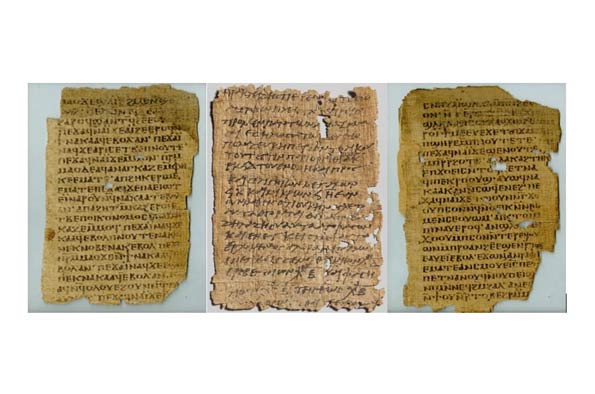
Syntheticity as a Feature of Coptic and the Influence of Greek on the Development of the Egyptian Language
Add this event to my calendar
Click on "Create a calendar file" and your browser will download a .ics file for this event.
Microsoft Outlook: Download the file, double-click it to open it in Outlook, then click on "Save & Close" to save it to your calendar. If that doesn't work go into Outlook, click on the File tab, then on Open & Export, then Open Calendar. Select your .ics file then click on "Save & Close".
Google Calendar: download the file, then go into your calendar. On the left where it says "Other calendars" click on the arrow icon and then click on Import calendar. Click on Browse and select the .ics file, then click on Import.
Apple Calendar: The file may open automatically with an option to save it to your calendar. If not, download the file, then you can either drag it to Calendar or import the file by going to File >Import > Import and choosing the .ics file.
(University of Liverpool)
Throughout its history, the Egyptian language exhibits the ‘linguistic cycle’ pattern, the alternation between analytic and synthetic forms, within the diachronic development of each of its verbal constructions, and for the most part this follows the crosslinguistic trend that an entire language does not exhibit analytic and synthetic stages, but that these stages occur at different times in individual constructions. However, within the development of the Coptic stage of the Egyptian language, every verbal construction experienced an increase in syntheticity, allowing Coptic to be classed as a synthetic stage of the Egyptian language.
This presentation will suggest that this was able to occur due to the period of ‘agraphia’ of the Egyptian population, in which there was no native Egyptian writing system available, and Greek was used as the predominant script in Egypt. The creation of Coptic using the Greek script, was thus a deliberate innovation, and allowed for deliberate changes to be made, including the increase in syntheticity of verbal constructions through standardised and widespread coalescence. This presentation will also investigate the influence the impact of Greek, which provided the script and many loanwords for the writing of Coptic and, at this time, contained highly synthetic verbal constructions, on the increase in the syntheticity of the Egyptian language.
Please email Rachael Cornwell (R.H.Cornwell@liverpool.ac.uk) or Daniel Lowes (D.G.Lowes@liverpool.ac.uk) for the zoom link.
